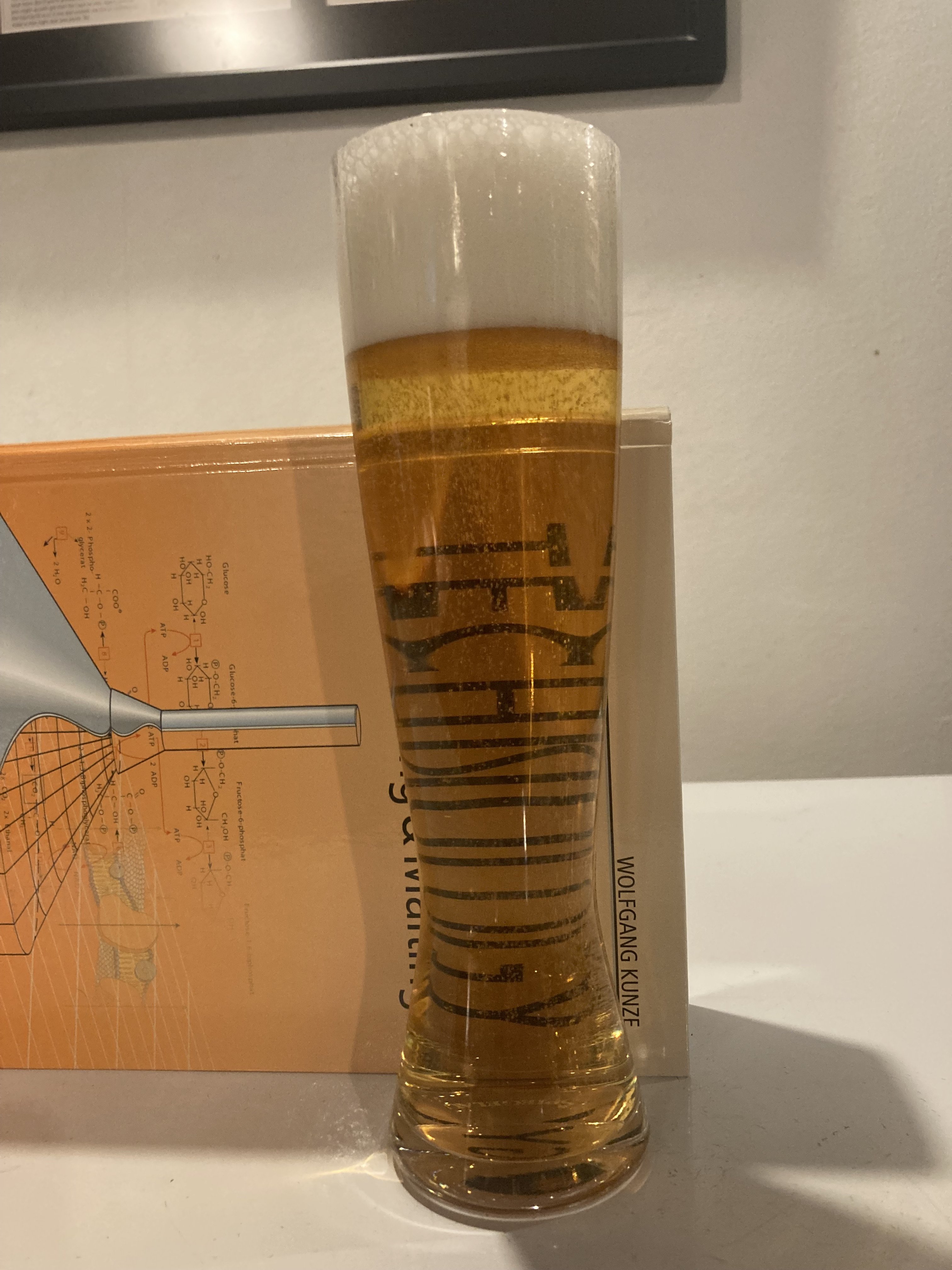I filter my lagers at 1 micron and my west-coast IPAs at 5 microns as I like them bright, clear, and fresh. My process is similar to
@Beermeister32 and
@ntempleton. I use a canister filter rather than a plate chiller with John Guest 1/4" NPT to quick disconnect fittings and use BevSeal Ultra 235 beer lines as my beer hoses. I fill the canister and lines with StarSan and purge the everything with carbon dioxide prior to filtering. I flip the canister upside-down so that the gas completely purges the StarSan from canister (otherwise the gas just bubbles through the StarSan). For my IPAs, I use a mesh screen inside the dry-hop keg to pre-filter so that the 5 micron canister doesn't get plugged with hop material.
Before filtering, I cool to 34F so that the haze-forming proteins come out of solution and form larger complexes prior to filtering. If you filter warm beer, then you can still get haze in the filtered beer, as the haze forming molecules can escape the filtering.
I also regularly filter carbonated beer as I spund and condition my lagers in my unitank prior to filtering and force carbonate my IPAs while they are dry hopping. The trick is to make sure that the receiving vessel is at the same pressure as equilibrium pressure for the carbonated beer. To make the process easier, I have a
1.75 gal mini keg that I fill 1/3 with StarSan and connect a sounding valve to the gas out. A regular keg would also be fine for this, but I picked up the mini-keg cheaply a while ago and it's easier to handle.
My setup is then:
CO2 regulator -> gas in - keg/unitank with unfiltered beer - liquid out -> canister filter -> liquid in - receiving keg - gas out -> liquid in - StarSan in mini keg - gas out -> spunding valve set at equilibrium pressure
Before filtering, the whole system is purged with carbon dioxide and pressurized to the equilibrium pressure of the carbonated beer. I then set the regular to 2 or 3 psi higher than the equilibrium to push the beer into the purged, pressurized receiving keg.
You could get away without the StarSan mini keg, but I've had one too many instances of beer squirting out of a spunding valve and this keg collects any spillage.
Kunze says that filtering should be done after maturation and lagering, but I often filter after cooling the beer and a short maturation in the unitank, with a longer maturation in the lagering keg.




































![Craft A Brew - Safale S-04 Dry Yeast - Fermentis - English Ale Dry Yeast - For English and American Ales and Hard Apple Ciders - Ingredients for Home Brewing - Beer Making Supplies - [1 Pack]](https://m.media-amazon.com/images/I/41fVGNh6JfL._SL500_.jpg)





















